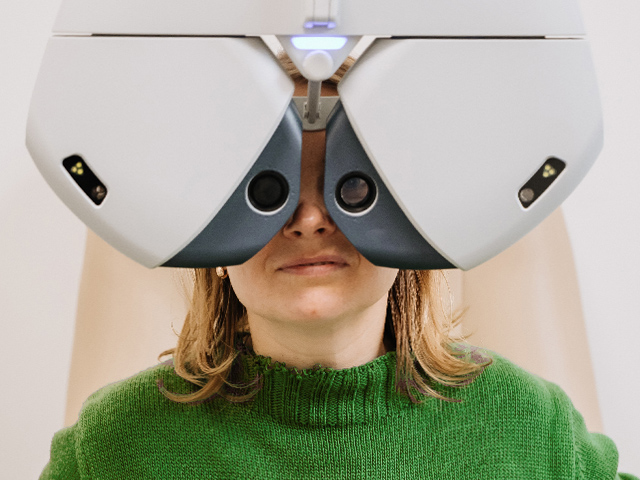
Dry eye syndrome is a common and often chronic condition that occurs when your eyes don't produce enough tears or when the tears evaporate too quickly. This can lead to a range of uncomfortable symptoms, including irritation, redness, burning, and even blurred vision. Understanding the underlying causes and factors that can exacerbate dry eye is crucial in managing this condition effectively.
Dry eye can be caused by a variety of factors, including age, hormonal changes, certain medical conditions, and environmental factors. As you grow older, your tear production may decrease, making you more susceptible to dry eye. Hormonal changes, such as those that occur during menopause, can also contribute to dry eye. Certain medical conditions, like Sjögren's syndrome, rheumatoid arthritis, and thyroid disorders, can also disrupt the tear production and quality.
How Summer Heat Affects Dry Eye Symptoms
One of the primary factors that can worsen dry eye symptoms during the summer is the increase in environmental factors that can exacerbate the condition. The combination of higher temperatures, and exposure to air conditioning can all contribute to the worsening of dry eye symptoms.
Higher temperatures can cause the tear film to evaporate more quickly, leading to a decrease in the amount of moisture on the surface of your eyes. This can result in increased irritation, redness, and discomfort. Additionally, the increased use of air conditioning during the summer months can further dry out the air, reducing the overall humidity and contributing to the evaporation of tears. This can result in a range of unpleasant symptoms, including:
Increased eye irritation and redness
Burning or stinging sensations
Blurred or fluctuating vision
Sensitivity to light and glare
Difficulty with tasks that require prolonged visual focus, such as reading or using digital devices
Strategies for Relieving Dry Eye in the Summer
There are several strategies you can employ to help alleviate the symptoms of dry eye during the summer months. Here are some effective approaches:
Hydrate Your Eyes: Regularly using eye drops or artificial tears can help replenish the moisture on the surface of your eyes. Look for preservative-free formulations and use them as directed, even if you don't feel immediate relief.
Limit Time in Dry Environments: Avoid prolonged exposure to air-conditioned rooms, fans, and other environments that can further dry out your eyes. Take regular breaks and step away from these dry environments when possible.
Adjust Your Environment: If you must spend time in air-conditioned spaces, consider using a humidifier to add moisture back into the air. You can also try positioning a fan or air purifier to circulate the air more gently.
Wear Sunglasses: Protecting your eyes from the sun's glare and wind can help reduce evaporation and irritation. Look for sunglasses with wraparound frames or side shields to provide maximum coverage.
Stay Hydrated: Drink plenty of water throughout the day to keep your body well-hydrated, as this can help support tear production and overall eye health.
Treatment Options for Dry Eye Syndrome
If your dry eye symptoms persist or worsen despite these self-care strategies, it's important to consult with an eye care professional. They can provide a comprehensive evaluation and recommend appropriate treatment options, which may include:
Prescription Eye Drops: Your eye doctor may prescribe medicated eye drops or ointments to help reduce inflammation, increase tear production, or address the underlying causes of your dry eye.
Tear-Stimulating Medications: In some cases, your doctor may recommend oral or topical medications that can stimulate tear production and improve the quality of your tears.
Lifestyle Modifications: Your eye care provider may suggest specific lifestyle changes, such as adjusting your diet, using a humidifier, or limiting screen time, to help manage your dry eye symptoms.
Procedures: For more severe cases of dry eye, your doctor may recommend procedures or devices, such as punctal plugs, lid margin treatments, or thermal pulsation therapy, to help improve tear production and distribution.
Enjoying the Summer While Managing Dry Eye
While the summer heat and environmental factors can exacerbate dry eye symptoms, there are effective strategies you can employ to find relief and continue enjoying the warm weather. By understanding the causes of dry eye, implementing self-care techniques, and seeking professional treatment when necessary, you can successfully manage your dry eye condition and maintain optimal eye health throughout the summer and beyond.
If you're struggling with dry eye symptoms this summer, schedule an appointment with Alpha Eye Group. We can help you develop a personalized plan to manage your condition and keep your eyes feeling comfortable and healthy, even in the hottest months. Visit our offices in Philadelphia, Wyomissing, Bethlehem Twp, Doylestown, Plymouth Meeting, or King of Prussia, Pennsylvania. Call (215) 698-7760, (610) 376-7272, (610) 866-1000, (215) 878-7181, (215) 230-4060, (610) 941-9780, or (610) 265-3100 to book an appointment today.




